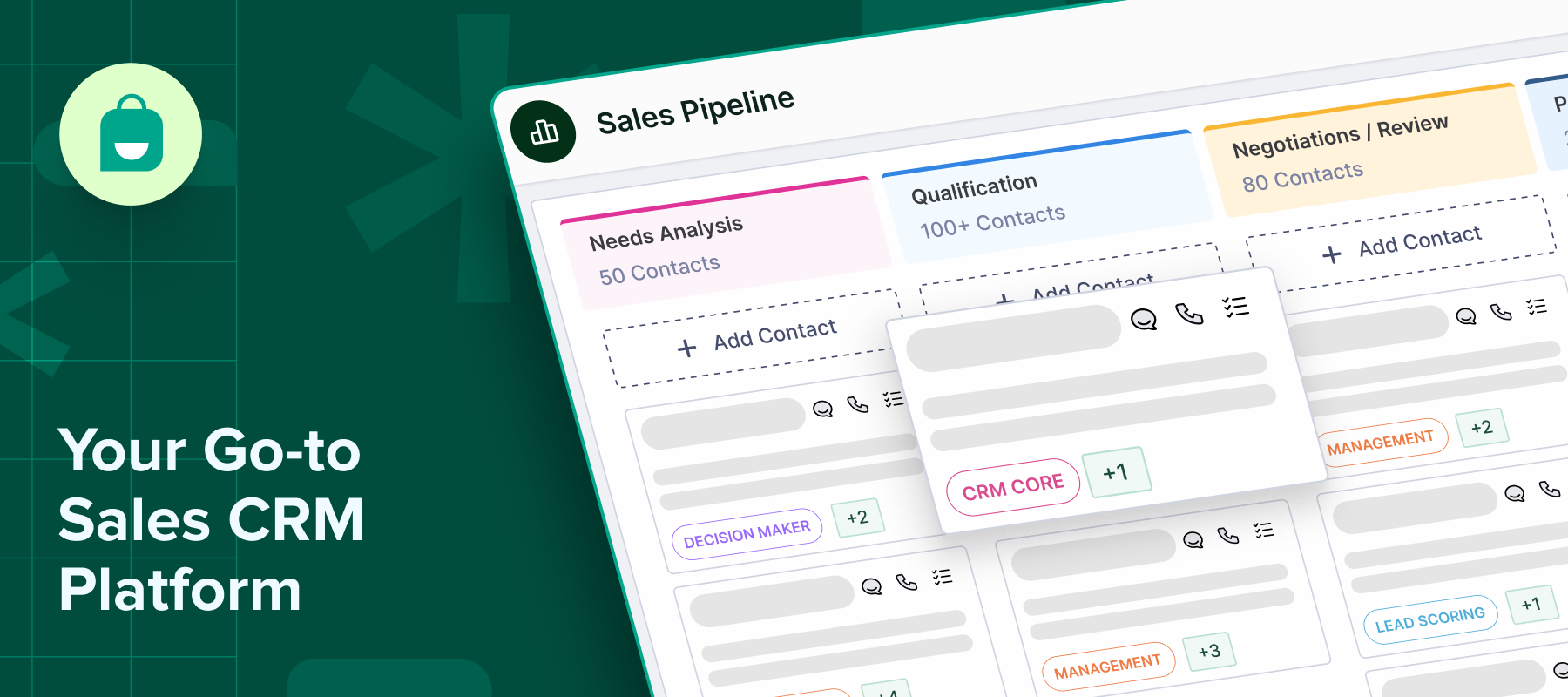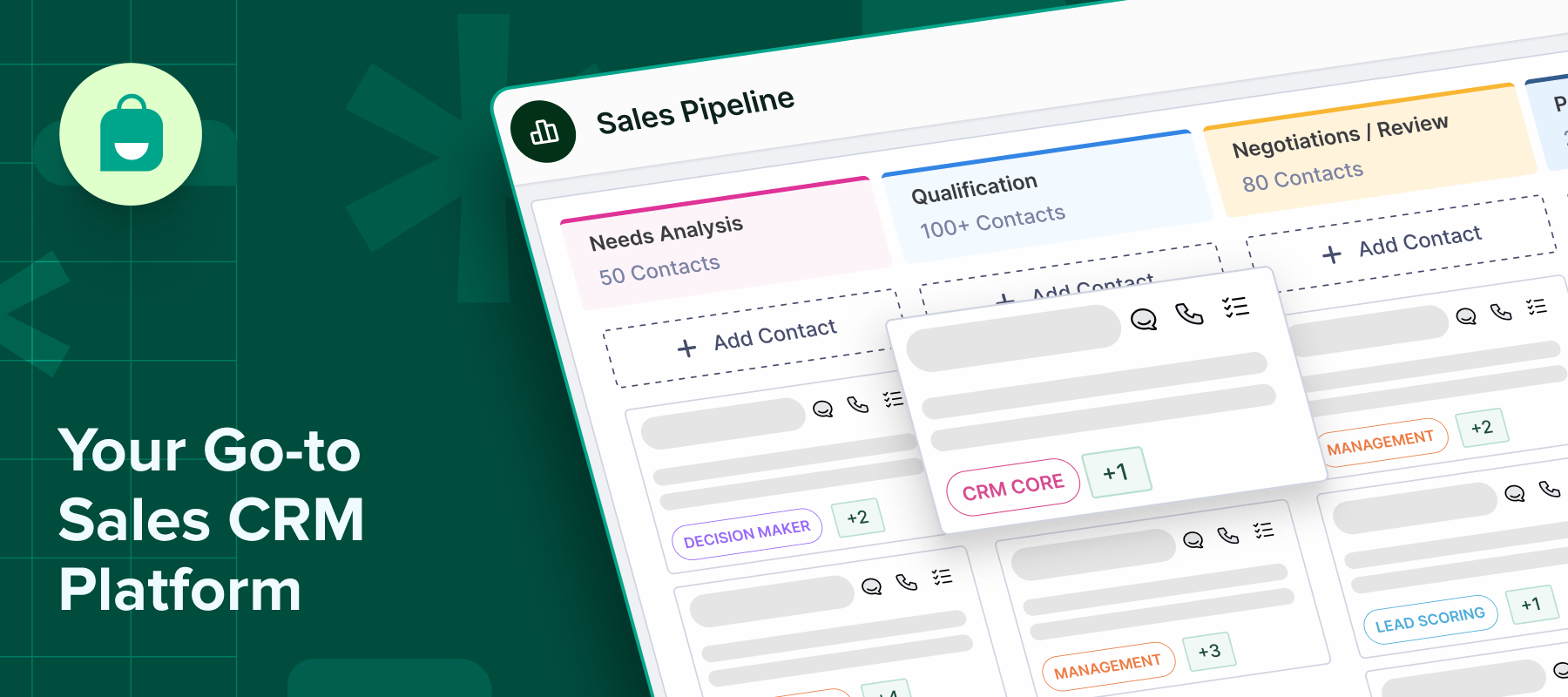Even though it does not seem obvious, the length of your sales cycle is directly tied to your revenue. That is, the longer it takes to close a deal, the more opportunities and resources you lose along the way. Slow, manual processes can often lead to missed follow-ups and delays, further resulting in frustrated prospects and a negative impact on growth.
CRM automation can help close deals quickly and efficiently by streamlining everything from lead assignment to customer communication.
In this article, we will attempt to explore and understand how sales CRM automation reduces sales cycle time and how your business can benefit from it.
What is sales cycle time, and why does it matter?
Sales cycle time can be defined as the total duration taken for a lead to move through the sales pipeline. In other words, it is simply the time between a prospect’s first point of contact to the closing of a deal, and will include every stage of the buyer’s journey like prospecting, qualification, follow-ups, pitching, negotiation, and final conversion.
Measuring the sales cycle time is very important for businesses as it allows sales teams to understand the efficiency of the sales process and identify potential areas for improvement.
In essence, ensuring shorter sales cycles means quicker conversions, higher productivity, and faster revenue. They also allow sales teams to handle more leads and close more deals without needing to boost effort or team size.
Ways CRM automation reduces sales cycle time
Here are some of the major ways in which CRM automation can contribute to shorter sales cycle time:
Instant lead assignment and routing
Instead of manually sorting and assigning leads, CRM lead routing automation can ensure that the leads go to the right sales team member based on criteria such as location, score, interests, etc. This quick action can ensure that there is no time lag and all opportunities are leveraged without fail.
Automated follow-ups and reminders
Tools such as Interakt can automate and personalize follow-ups and reminders, ensuring the right type of content or the right message reaches prospects at the most appropriate times. Timely, relevant interactions through CRM follow-up automation, thus have the potential to quickly convert leads into buyers.
Intelligent pipeline management
Using automation makes sales pipelines more predictable and organized, resulting in shorter sales cycles. CRM systems are capable of automatically updating deal stages, highlighting high-priority leads, and surfacing the next ideal steps, therefore keeping deals on track without needing constant oversight.
Faster quote generation and approvals
Generally, creating and sending quotes involve multiple steps and approvals, which can lead to lengthier sales cycles. CRM automation speeds this up with templates, pre-set rules, and instant notifications, leading to faster responses and fewer lost deals.
Real-time insights into deal progress
Live dashboards and automated reporting features give your team a comprehensive view of how your sales cycle is performing and how deals are progressing. Real-time insights like this allow for quicker decision making and timely intervention when needed.
Reducing manual tasks and delays
Tasks like data entry, task creation, call logging, etc., are highly time-consuming and require a lot of effort. CRM automation eliminates this manual effort and frees up your team to spend more time on active selling, thus pushing deals faster.
Automating customer communications
From the very first welcome message you share to the post-demo follow-ups, CRM systems can ensure timeliness and personalization to keep leads warm and engaged, without needing your team to handle each and every piece of communication manually.
Data-driven decision-making with CRM reports
With real-time reports and analytics, which most CRM platforms, including Interakt, come with, teams can spot patterns, predict outcomes, and adjust strategies on the go. This is guaranteed to lead to faster, smarter moves that keep deals progressing rather than stalling.
Benefits of a shorter sales cycle through CRM automation
Achieving a shorter sales cycle through CRM automation brings several advantages:
Higher conversion rates
When your team is spending less time waiting on follow-ups or on digging through lead data, they can easily engage prospects at moments where interest is the highest. Automation can ensure timely communication and task execution, leading to improved conversions.
Increased revenue
Shorter sales cycles naturally translate to faster deal flow. As CRM automates a significant chunk of routine tasks, teams can close more deals and boost the overall sales performance and revenue.
Better customer experience
Automation with the aim of shortening sales cycle time will be able to provide prompt, personalized communication at every touchpoint, resulting in a friction-free buyer journey.
More time for prospecting and upselling
With the time savings from shorter sales cycles, your sales rep can focus on high-value activities like finding new leads, upselling to existing customers, and building lasting relationships.
Best practices to reduce sales cycle time using CRM automation
To maximize the impact of CRM automation, here are some best practices to follow:
Align sales and marketing workflows
When both sales and marketing teams operate with shared visibility that a CRM with shared access enables, leads can move faster through the sales funnel. This can make for a seamless and unified effort where marketing can deliver high-quality leads, while sales can instantly follow up without any delays.
Set clear lead qualification criteria
Without a clear definition of what makes a lead sales-ready, your team is bound to lose time chasing poor-fit prospects. Use CRM to create automated lead scoring based on factors like lead behavior, demographics, engagement levels, etc. With a clear lead scoring system in place, your team will have an easier time identifying high-intent leads and thus can move them through the pipeline faster.
Use CRM analytics to identify bottlenecks
CRM tools like Interakt come with real-time analytics and reporting features as well as comprehensive dashboards, which can be highly effective in identifying bottlenecks in the sales cycle. This lets you quickly catch and address issues like stalled negotiations, missed opportunities or slow follow ups.
Automate repetitive sales tasks
Make sure that your sales team is not bogged down by routine tasks, and rather is focusing on more pressing activities like engaging leads and deal closures. You can do this by your sales team from time-consuming admin work by automating data entry, task reminders, and follow-ups.
Optimize automation workflows
One golden rule that you should remember when using automation is never to set it and forget it. Review performance regularly to understand what is working the best and to recognize areas where lead drop-offs are high. You need to tweak the workflows based on real-time data to keep sales cycles short and effective, and well-adapted to evolving buyer behaviors.
Conclusion
Speed is critical to all sales, and embracing CRM automation to cut down delays and streamline your processes, you can guarantee speedier deal closures, while maintaining a human touch.
Looking to simplify your sales process and supercharge your sales cycle?


